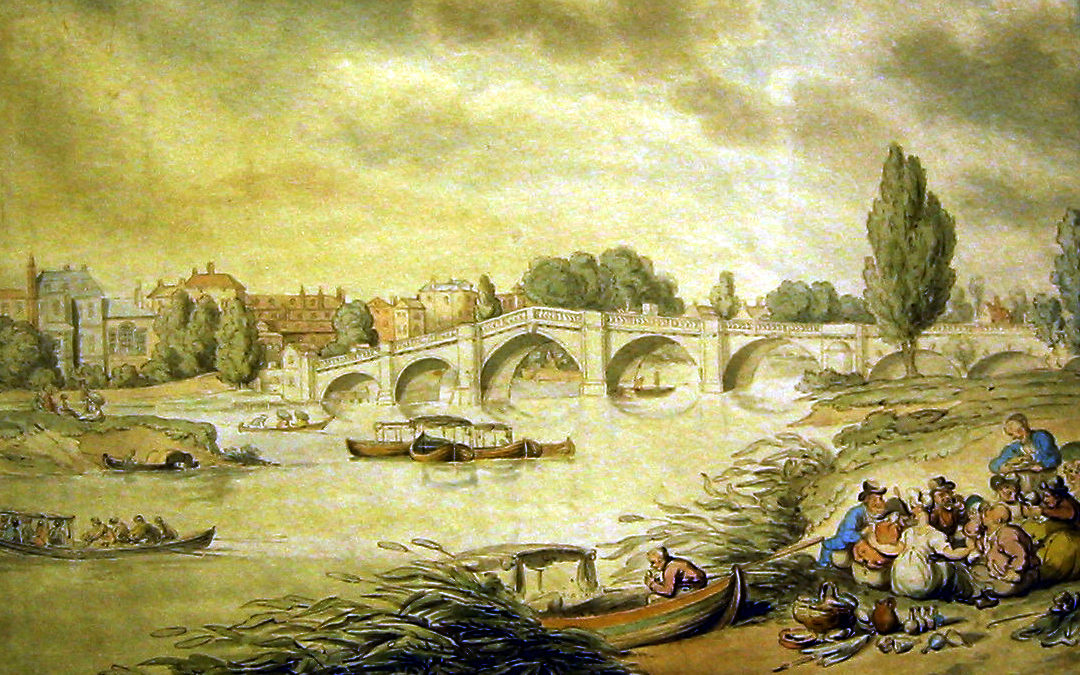 Rowlandson’s Richmond Bridge, Surrey documents a picnic party at low tide on the Thames’s sandy shore opposite Hampton Court. It was common for Londoners to hire a water taxi to transport picnicker out of the city and into the country for an afternoon of eating and...
Rowlandson’s Richmond Bridge, Surrey documents a picnic party at low tide on the Thames’s sandy shore opposite Hampton Court. It was common for Londoners to hire a water taxi to transport picnicker out of the city and into the country for an afternoon of eating and...
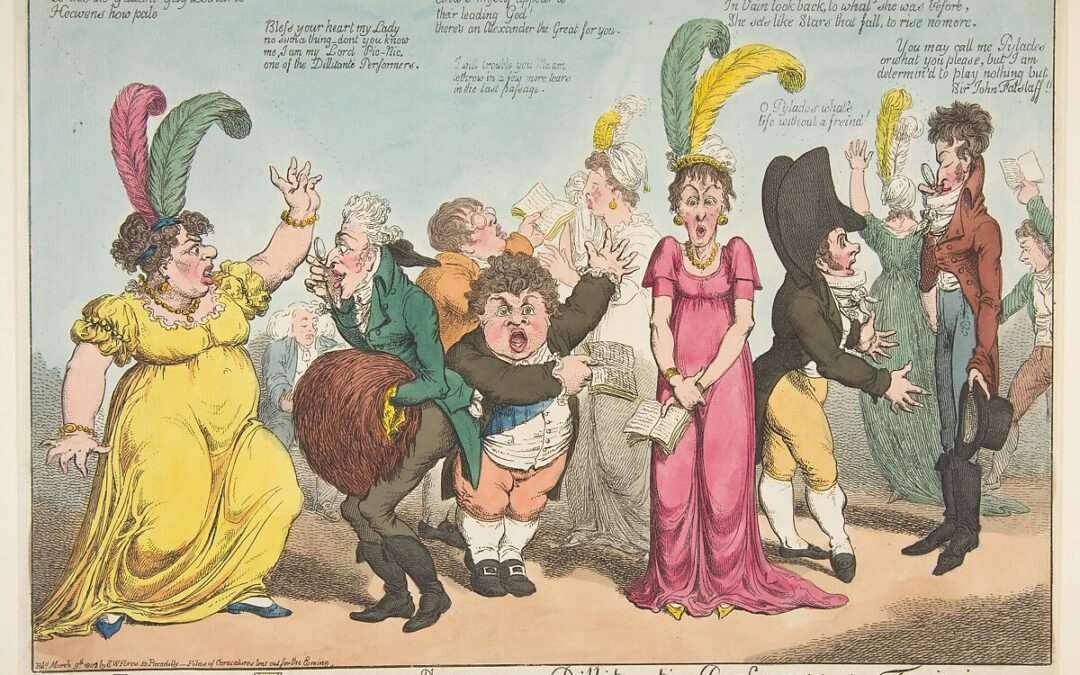 Williams’s Peep into Tottenham Street, or Dilettanti Performers in Training is a knockoff of Gillray’s caricature Dilettanti Theatrical;-or-a Peep at the Green Room. Vide Pic-Nic Orgies (Tottenham Street was the location of the rooms the Pic Nics rented for their...
Williams’s Peep into Tottenham Street, or Dilettanti Performers in Training is a knockoff of Gillray’s caricature Dilettanti Theatrical;-or-a Peep at the Green Room. Vide Pic-Nic Orgies (Tottenham Street was the location of the rooms the Pic Nics rented for their...
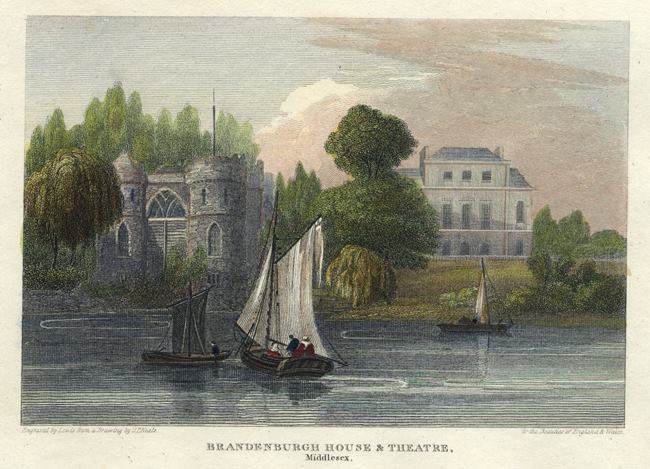 From 1780-1820, “Dilettanti,” or amateur theater aficionados, organized theater groups. Among the most passionate, Louise Craven, Margravine of Ansbach, who wrote plays, produced and acted in them, persuaded her doting husband, the Margrave of Ansbach, to...
From 1780-1820, “Dilettanti,” or amateur theater aficionados, organized theater groups. Among the most passionate, Louise Craven, Margravine of Ansbach, who wrote plays, produced and acted in them, persuaded her doting husband, the Margrave of Ansbach, to...
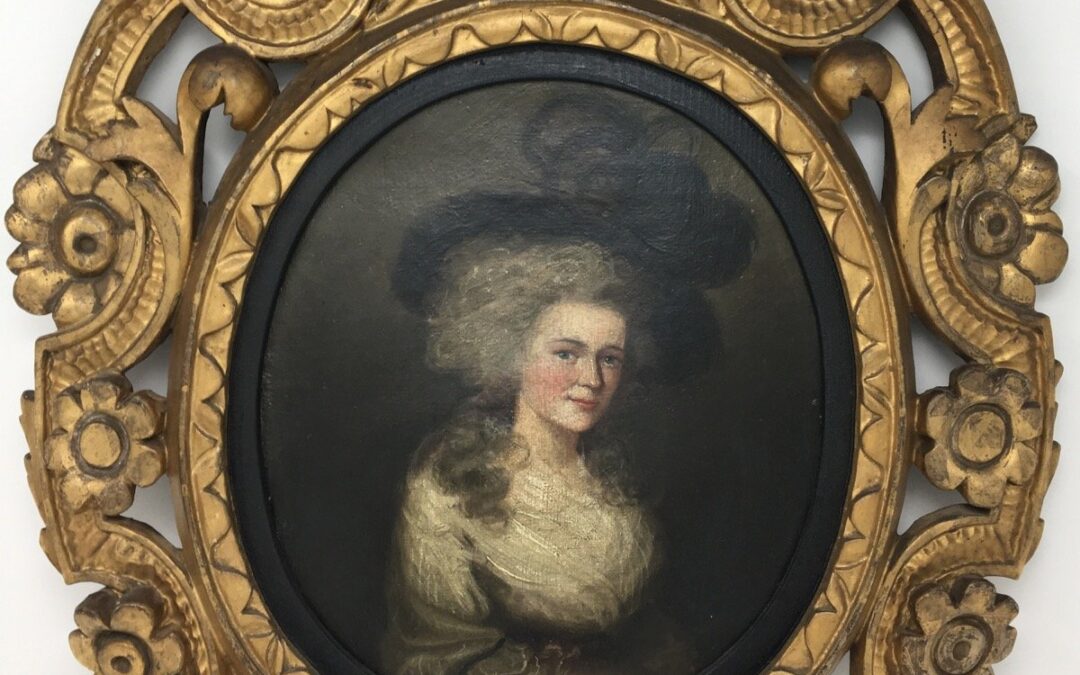 Stuart’s firsthand memories of the time that parallel Henry Angelo’s playful attitude towards the Pic Nic society. She attempts a comic attitude, that really masks her antagonism. “Its partisans, “she wrote in her journal, “might have been pursued to the stake or...
Stuart’s firsthand memories of the time that parallel Henry Angelo’s playful attitude towards the Pic Nic society. She attempts a comic attitude, that really masks her antagonism. “Its partisans, “she wrote in her journal, “might have been pursued to the stake or...
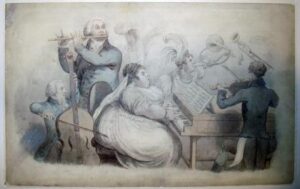 Gillray’s caricature Dilettanti Theatrical; or a Peep at the Green Room. Vide Pic-Nic Orgies lampoons the Pic Nic Society. For a brief time, the Pic Nics were one of Gillray’s prime targets, and his satire Blowing up the Pic Nics helped to hound the society into...
Gillray’s caricature Dilettanti Theatrical; or a Peep at the Green Room. Vide Pic-Nic Orgies lampoons the Pic Nic Society. For a brief time, the Pic Nics were one of Gillray’s prime targets, and his satire Blowing up the Pic Nics helped to hound the society into...
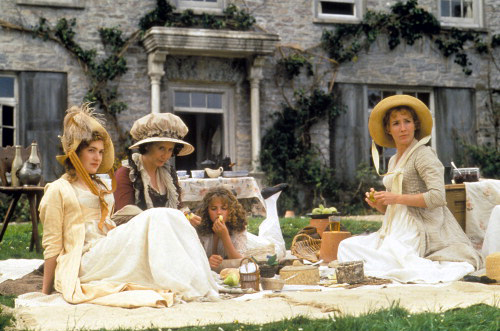 Emma insults Miss Bates. But she outdoes herself in Sense and Sensibility, in which she deflates her characters’ high expectations by abruptly canceling the picnic. The “party of pleasure,” Austen’s euphemism for a picnic, was intended at...
Emma insults Miss Bates. But she outdoes herself in Sense and Sensibility, in which she deflates her characters’ high expectations by abruptly canceling the picnic. The “party of pleasure,” Austen’s euphemism for a picnic, was intended at...
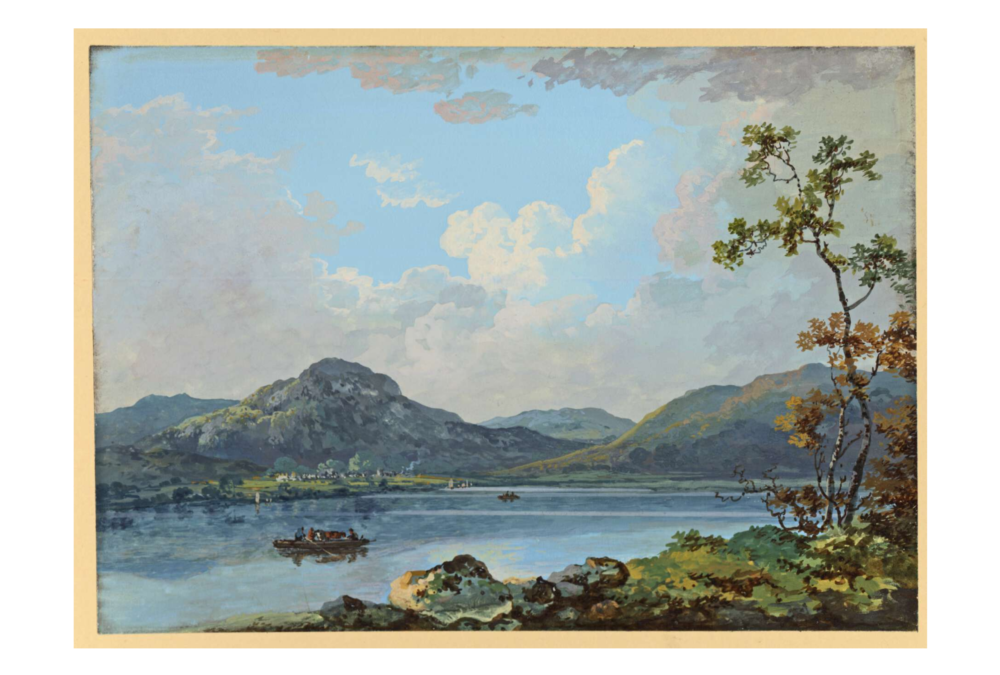 Wordsworth’s lines reveal the sudden beauty a picnicker might encounter, which triggers pleasure and spiritual ease at an evening picnic: Ah! That such beauty, varying in the light Of living nature, cannot be portrayed By words, nor by...
Wordsworth’s lines reveal the sudden beauty a picnicker might encounter, which triggers pleasure and spiritual ease at an evening picnic: Ah! That such beauty, varying in the light Of living nature, cannot be portrayed By words, nor by...
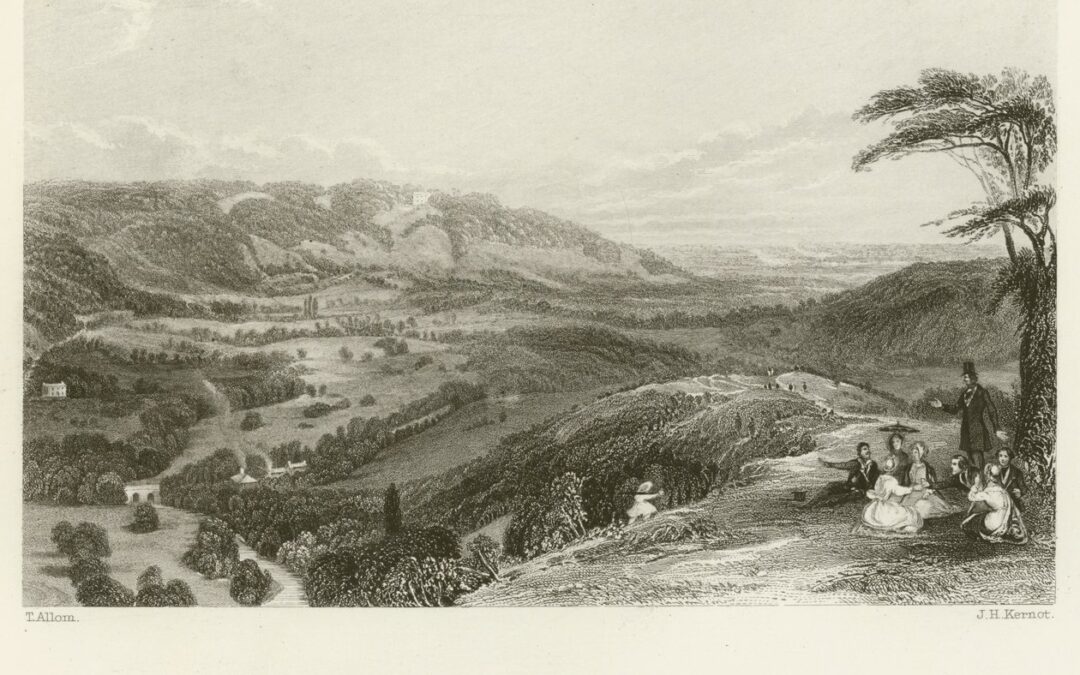 Austen’s Emma has two picnic episodes, one of which never happens * and the other a proper picnic at Box Hill. During strawberry season, Emma Woodhouse and her crowd gather in Knightley’s Donwell Abbey garden. Mrs. Elston’s enthusiastic plan for a...
Austen’s Emma has two picnic episodes, one of which never happens * and the other a proper picnic at Box Hill. During strawberry season, Emma Woodhouse and her crowd gather in Knightley’s Donwell Abbey garden. Mrs. Elston’s enthusiastic plan for a...
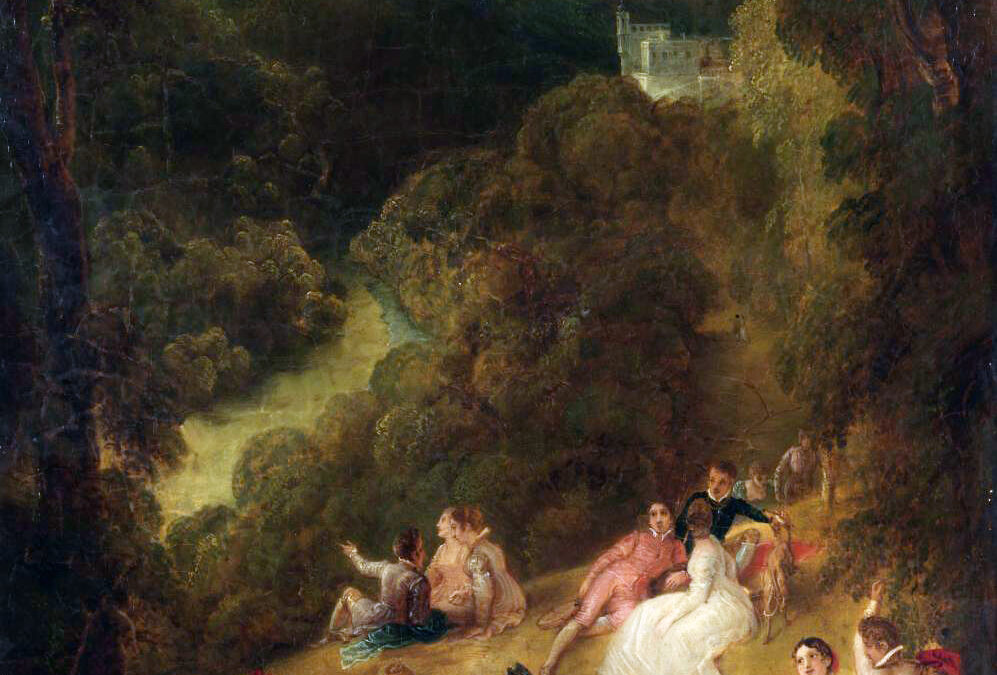 Thomas Stothard’s San Souci is a picnic in the style of the fête galante associated with Jean-Antoine Watteau. Couples dressed in 17th-century clothing enjoy their leisure in varying poses of elegant courting. The foreground includes a picnic cloth with food and...
Thomas Stothard’s San Souci is a picnic in the style of the fête galante associated with Jean-Antoine Watteau. Couples dressed in 17th-century clothing enjoy their leisure in varying poses of elegant courting. The foreground includes a picnic cloth with food and...
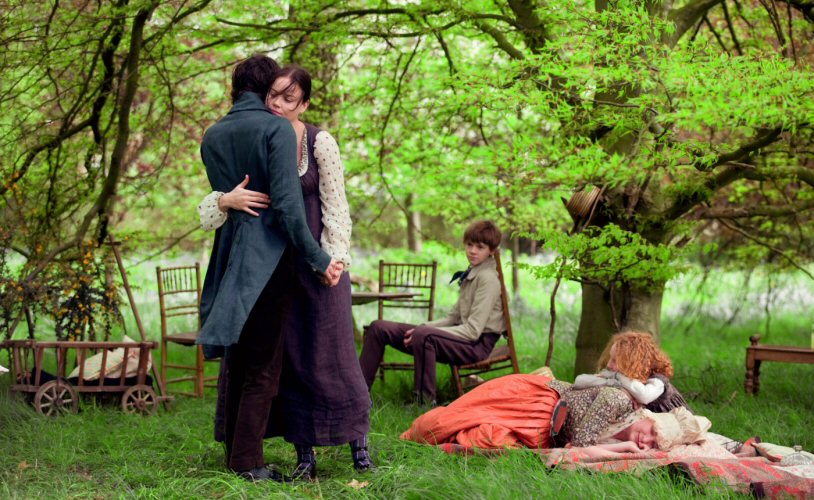 Keats uses the phrase “pic nic scandal” to suggest something silly, and he tosses it off as if it’s a common phrase, but it’s unique to him. Writing to his brother George and his wife Georgiana, he writes, “Perhaps as you were fond of...
Keats uses the phrase “pic nic scandal” to suggest something silly, and he tosses it off as if it’s a common phrase, but it’s unique to him. Writing to his brother George and his wife Georgiana, he writes, “Perhaps as you were fond of...











